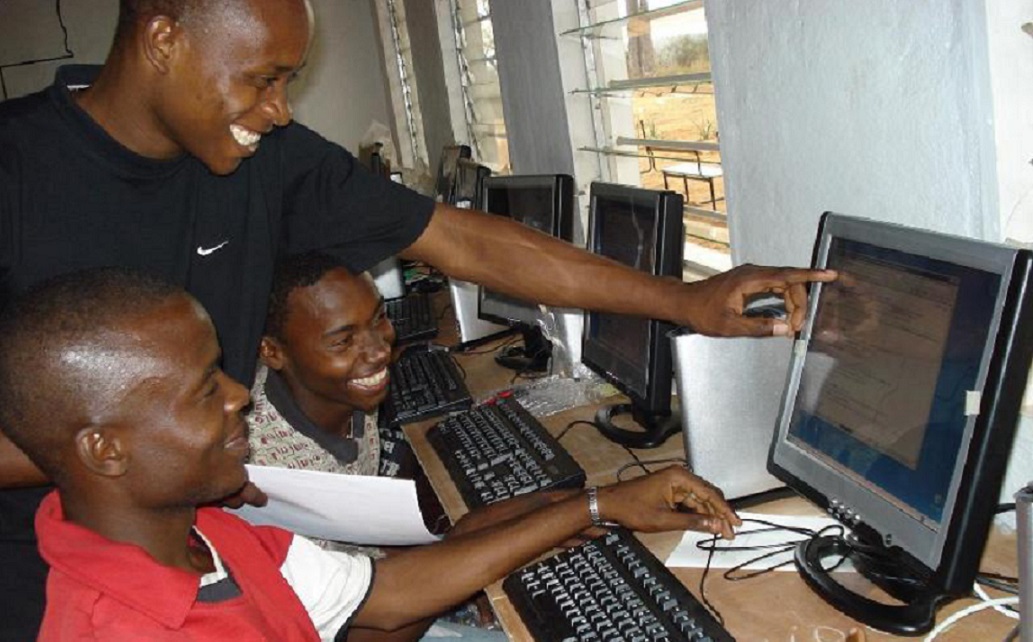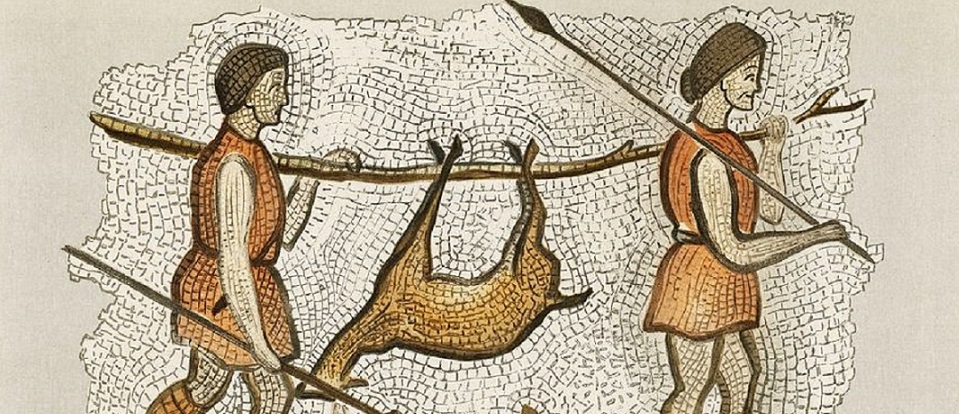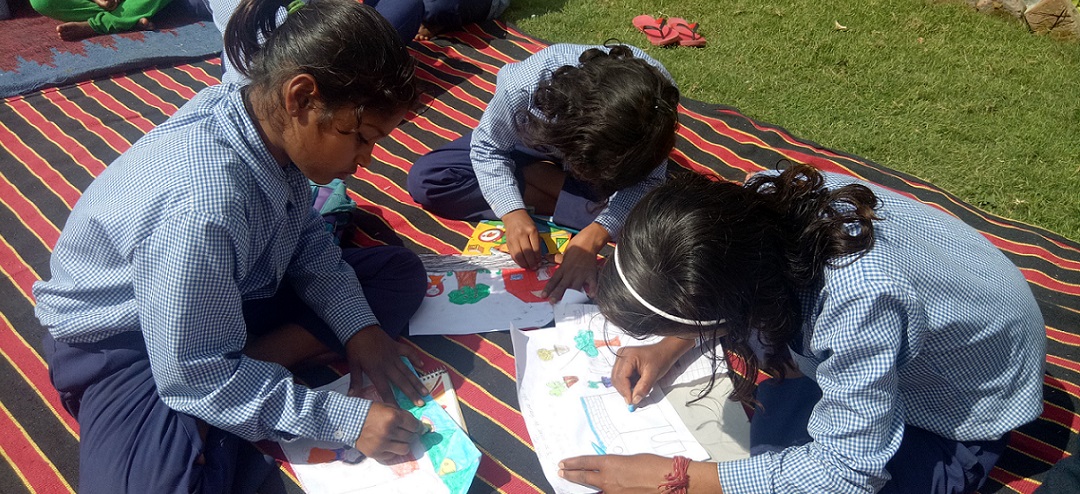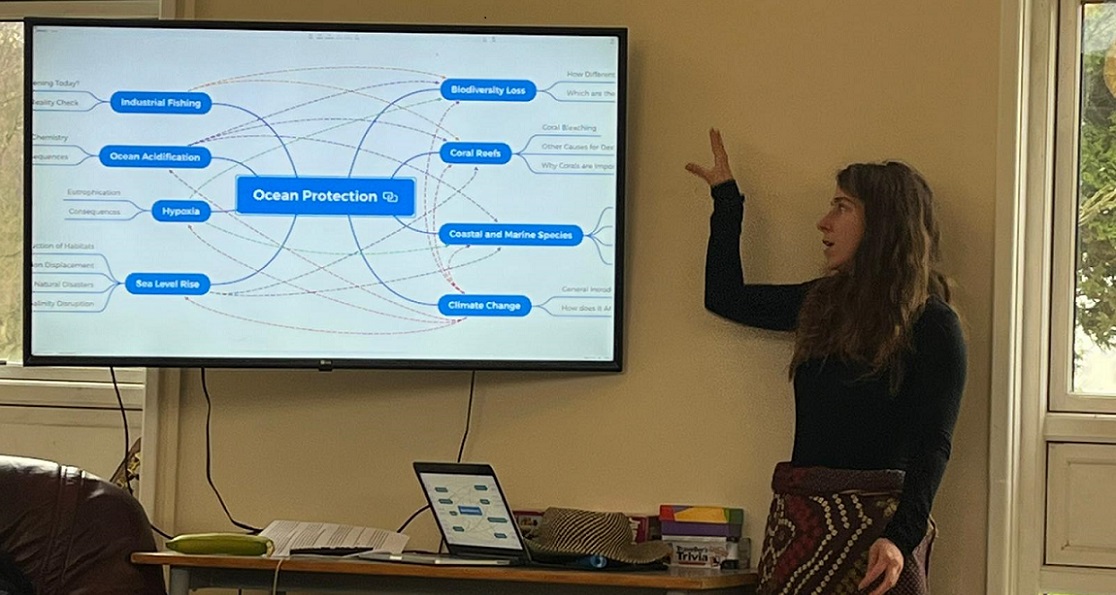An education for the 21st century: what is the role of education today?
By Anne Hoejholt, leader of ISET – One World’s distance learning programme. 2021
The world of today presents us with unprecedented challenges and situations. What would a competent education for the 21st century look like?
As teachers living in outstandingly fast paced times, it is legitimate to ask ourselves: how can we imagine and design an appropriate education for the 21st century? In other words, what should schools look like, to prepare the students of today for the challenges of tomorrow?
In this article, we would like to argue why the current educational system needs to be radically rethought, and to inspire with a few elements that would help us achieve this successful change. Hopefully, these thoughts will serve to some as an incentive to action.

A powerful tool for creating the future
We live in a time where changes within human societies and on our planet are happening with an increasing speed. Changes that earlier in our history happened over centuries now happen within a single decade or even a single year. The conditions for life on Earth are changing, temperatures are rising, the ecological cycles of life are being distorted, many species are getting extinct and we are facing the possibility of the extinction of our own species as well.
We are hit by one economic crisis after another where millions lose their livelihood. The gap between rich and poor is widening and lately the global community has been hit by a pandemic locking societies down, stopping production, causing unemployment, closing schools and forcing substantial parts of the global population to simply “stay at home”.
Schooling is a powerful tool for creating the future – transferring knowledge, training useful skills, instilling attitudes and ethics. Schooling is not a neutral thing. Schools function and serve society within the existing societal contradictions.
We know the past. We can prepare for that. We do not know the future, but the children we teach in 2020 will live their adult life from 2030 to 2070 – under very different circumstances from the ones we know about today. This article will work with how we best can prepare our kids and youngsters for that.
How did education and “schooling” start?
A historical perspective - from nomadic hunter-gatherer life to sedentary agriculture.
With the introduction of agriculture approximately 12.000 years ago the basis for cities was born, where persons could gather, living from the agricultural products produced by others in the surrounding areas of the city started to develop.
The transmission of knowledge and skills from one generation to another started as well changing being more diverse – since now different groups needed different skills and knowledge. Society diversified the transmission of knowledge and skills started to separate from the family, becoming more trade and profession based, later becoming institutionalised general training – the concept of “school” was born.

The industrial society
Industrialisation and the rapid developments brought more complex societies, and the demand to each person’s ability for being able to function in the society, increased as well. The needs developed for the citizens in the new industrialised societies to be able to read and write, do simple math, have a work discipline of following orders, and work on time schedules according to the clock, not just according to the sun or the necessities of the season.
A “school for all” became necessary but in most cases different schools for children from the different classes.
The 20th century
The world’s population increased from approximately 1.6 billion at the beginning of the 20th century to more than 6 billion by the end, which changed many things on the planet. Technology and sciences continued to develop changing production, consumption, and the way of life. Some countries started to introduce the use of computers and ICT technology in the schools as part of the teaching and learning.
The 21st Century
Our species, homo sapiens, is by now influencing the whole Planet with catastrophic consequences for all other living species, as well as for the Planet itself. The escalating destruction of our environment with rising temperatures and climate changes caused by the excessive and escalating burning of fossil fuels are according to scientists most likely to reach tipping points.
We are in dire need of generations that can develop human societies for the common good, protecting life on our planet now and for the future. As the accumulated knowledge, gained over generations is so readily available at one’s fingertips via the internet. The new information and communication technologies open new possibilities for access to information, but also opens up for spreading of misinformation, slander and confusion as well.
This gives new challenges for the institutions of teaching and learning. We can say that we face a complex situation, where not much can be taken for granted. We have no firm guidelines to the question of what content will be the most important to teach to prepare the new generation for their life in society 20-60 years from now.
The double potential of schools and “Schooling”
Schools, schooling, education and training – have different potentials and serve for different purposes. Most schools are established by the ruling class or by “the establishment” with the purpose of educating people who can serve society as it is, in other words, “schools” have the potential to serve and maintain the prevailing power structures.
However, schools also have the opposite potential, since knowledge also empowers individuals and groups in general. These individuals and groups can use their gained potential to change the prevailing power structures to the benefit of other classes.
Some of the clearest examples of the schools’ double potential we can find within the independence movements in Africa, Asia and Latin America of which many ended up overthrowing the colonial powers.
Within the so-called “first world” we can find the same double function of schools and education in the many grassroots organisations that through the years have worked for establishing alternatives to the present society. We find this for example within the establishment of private progressive schools inspired by revolutionary pedagogues like Paulo Freire, John Dewey, Anton Makarenko, Niels Severin Grundtvig, and many others.
Our present school systems built on competition – the schools of yesterday?
In 2020 many schools still teach the children the skills and knowledge needed to function in the industrial society. Then there was a need for citizens that could absorb knowledge via rote learning; follow orders, not questioning superiors; arrive on time; and compete with their fellow students learning that cooperation is suspicious and in many cases will be called cheating.
Students are taught to work individually competing with each other – despite the fact that the serious problems we face today can only be solved via co-operation. They are taught without questioning if what they are told has relevance, or if it is the right thing to do. This is killing or hindering critical thinking, creativity and independent thinking. Our societies need people who can think out of the box, think creatively and innovate.
In many cases, students are treated like “objects” for the teaching and not as “subjects in their own learning”. Most schools are organised with the teacher (and not the students) in the centre. The teacher asks, although he knows the answer, and the students try to guess which answer the teacher wants. However, newer pedagogy and many national laws for education suggest a student-centred teaching.

The challenges we face today
The capitalist system is based on everyone competing against everyone, forcing all to do what is best here and now for the economy, meaning to think and act for the short term. Our environmental crisis with the consequence of global warming and climate change can only be solved, if we start to act for the longer term. We must give up the idea of eternal economic growth as the prevailing paradigm.
We must train and educate the new generations to question our prevailing political systems and start creating other systems that can assure sustainability. We must train the next generations to adapt to the many inevitable changes, but also to participate in giving the changes a direction towards the common good, securing the future for continuous life on our planet.
We must use the potential of school and education for training the new generation to adapt to the inevitable changes as well as being part of steering the changes towards the common good of all living creatures on our planet.
Inspirations from present and past pedagogues and philosophers
The discussion of whether schools, teaching and learning should have the purpose of maintaining society as it is, or it shall train the next generation to question the status quo, think independently and influence and act out changes, is not a new discussion.
During the history of Pedagogy, we find progressive pedagogues using different pedagogical methods liberating their students by teaching them creativity, co-operation with their fellow humans, critical thinking, and the courage, will and capacity to become able to act independently and get into the habit of changing what one does not find right.
Critical thinking – Socrates and Paulo Freire
The purpose of fostering critical thinking and of liberating each student’s potential to think independently, took place already in Greece more than 400 years BC. Socrates introduced a dialectical method, involving a discussion based on questions to stimulate critical thinking and provoking the discussion to reconsider the beliefs and values of the participants.
Paulo Freire is one of the most famous speakers for the development of critical thinking and for using education for liberating the students. In his book “Pedagogy of the Oppressed” he criticised the conventional school strongly and suggested a pedagogy with the purpose of liberating the students making them able to deal with their daily life issues independently. Freire claimed that education must be the central feature of building movements for radical social change.
The school for life versus the “black school” or the “school for death”
A critique of the traditional school – N. S. Grundtvig and Kresten Kold
Grundtvig introduced the concept of “The school for life” calling the conventional school “the school for death”. He wanted a free dialog between the students and the teacher, and between the students. One of his main slogans was that teaching first must “enliven” and then “enlighten” the students. Grundtvig was a strong speaker for the “spoken words” and pointed out that “the written words” are dead, even if they are written by the fingers of angels.
His thoughts had big influence in Denmark, where the practical pedagogue Kresten Kold, started the first Free schools implementing Grundtvig’s and his own ideas. Kold started his first Folk High School for young adults, mainly daughters and sons of the farmers, who came together in these schools – not to get an exam, but simply to develop themselves in interaction with their fellow students and their teachers.

The German concept Bildung/Dannelse (Education/formation)
The concept of Bildung, which does not have an exact English translation, comes from the Germanic/Nordic inspired educational tradition. The goals are broader, aiming towards human refinement and independence, the most important thing here is not just useful knowledge in the sense of know-how.
It is crucial for the student to develop criteria for the use of this knowledge. He/she must be able to decide for themselves how and for what they will use these. An important part of Bildung/formation is “democratic formation” where the students train to act democratically and not just learn how democracy functions politically.
Handlingskompetence, the action competence
This concept was developed in Denmark by the Danish Pedagogues Karsten Scnack and Hans Jorgen Kristensen during the 1980s and 1990s. Action competence is based on “a fundamental trust in yourself and others” and on the interaction of at least six different competences leading to “Insight/wisdom”.
The idea of the model is that the dialectical interaction of all the components of the model is a precondition for the competence of acting out one’s ideas together with other fellow beings.
Since we do not know what kind of society to educate for, it is not enough to provide the students with knowledge and traditional skills. They must learn to act within changing situations – not only adapting to the new circumstances but “join in and help shape” the new.
Eco-literacy
As mentioned above, one of the main problems we are facing today is the environmental crisis.
“Eco-literacy involves a new kind of “systemic” thinking—thinking in terms of relationships, connectedness, and context.
Teaching eco-literacy is the great challenge for education in the twenty-first century. It is an enterprise that transcends all our differences of race, culture, or class. The Earth is our common home, and creating a sustainable world for our children and for future generations is our common task.” (Fritjof Capra, 2015:5).
“Schools teach—whether they are conscious of it or not—by how they make community decisions, invest their resources, and provision themselves with food, energy, materials, shelter, transport, and water and that learning is simultaneously social, emotional, cognitive, and ethical.” (Fritjof Capra, 2015)
Conclusion
To prepare the new generations for a life in a rapid changing society, we need to empower the students. We need to give them tools to find their own ways in co-operation with their fellow human beings, including understanding, respecting and protecting the many subtle networks of living systems on our planet and the planet itself.
For this, we need a broader concept of the goals for teaching and learning. The goals need to be a holistic development of each student, contributing to their ability to cope with changes and participate in giving the changes a direction towards the common good, and training the ability and habit for lifelong learning – always updating oneself to the present situation and for the future to come.
Since we live in a globalised world, they will have to learn about their national situation as well as the international situation, understanding the different challenges mankind is facing in our time. They will need to know, understand and care for our blue planet – protecting the planet itself with all the living creatures and creating a sustainable future.





